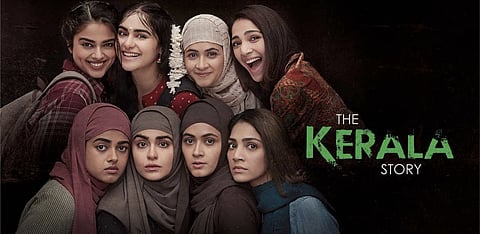

The court criticised the West Bengal government for making the exercise of "fundamental rights dependent on the public display of emotion". "You can't make fundamental rights be dependent on the public display of emotion. Public display of emotion has to be controlled. You do not like, do not see it," the CJI observed.
—
ON Thursday, the Supreme Court stayed an order passed by the West Bengal government imposing a ban on the movie The Kerala Story. A Bench comprising Chief Justice of India (CJI) Dr D.Y. Chandrachud and Justices P.S. Narasimha and J.B. Pardiwala was hearing a petition filed by the film's producer against the ban.
The Bench also directed the Tamil Nadu government to ensure adequate security in theatres screening the film, while taking on record the statement made by the state government that there is no direct or indirect ban on the film in Tamil Nadu.
The Bench questioned the claim made in the film that 32,000 women from Kerala had been deceitfully converted to Islam and made to join the militant Islamist group, the Islamic State of Iraq and Syria (ISIS).
Senior advocate Harish Salve, for the filmmakers, quickly clarified that the movie is a work of fiction, dramatised, and could not be authenticated. He added that a disclaimer would be added by 5 p.m. on May 20 clarifying that the film represents a fictionalised version of its subject matter.
Senior advocate Dr Abhishek Manu Singhvi, for the West Bengal government, sought to defend the ban imposed by the state government, primarily on the ground of preserving public peace.
An unimpressed CJI Dr Chandrachud observed that the Section 6 of the West Bengal Cinemas (Regulation) Act, 1954 could not be utilised to put a premium on public intolerance.
The CJI also observed that the power under the Act should be exercised in a proportional manner by the state government, and there could not be a blanket ban on the movie.
"You can't make fundamental rights be dependent on the public display of emotion. Public display of emotion has to be controlled. You do not like, do not see it," the CJI observed.
Senior advocate Gopal Sankarnarayanan, for the West Bengal Police, also endorsed the ban on the grounds of public order.
Senior advocates Kapil Sibal and Huzefa Ahmadi, appearing in connected petitions, also supported the ban on the movie. Both urged the court to watch the movie to decide whether it falls within the permissible limits of Article 19(1)(a) of the Constitution.
Earlier this month, the Kerala High Court had refused to stay the release of the movie. The Supreme Court had also turned down a similar petition seeking a ban on the release of the film.